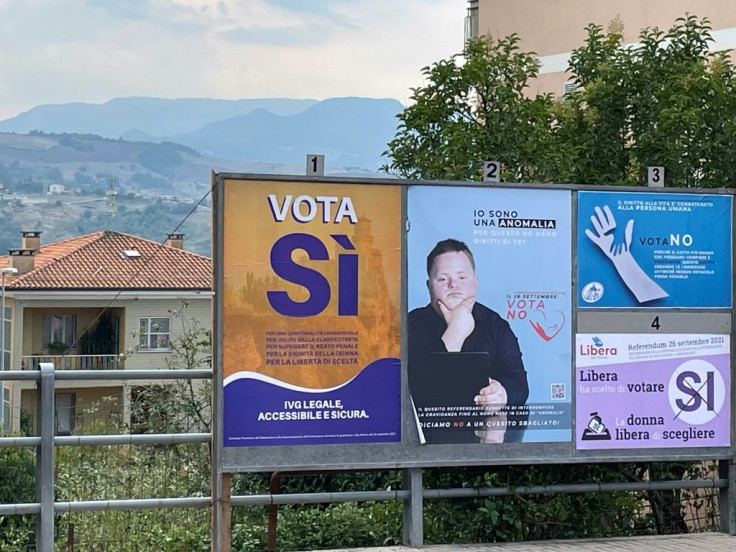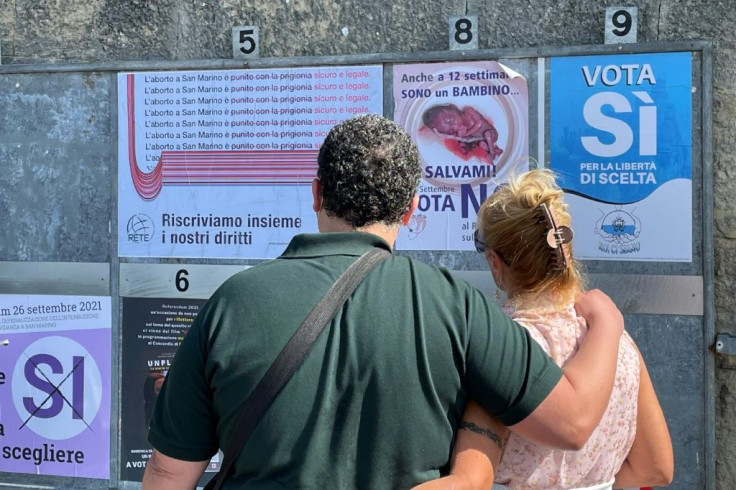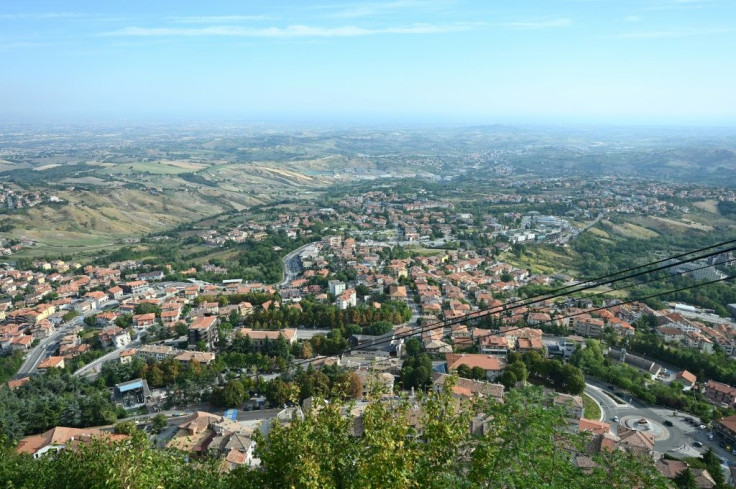Tiny San Marino Holds Abortion Referendum
The tiny state of San Marino votes Sunday in a highly charged referendum over whether or not to allow abortion in the predominantly Catholic country.
Campaigners hope to bring the picturesque republic, situated on a mountainside in the centre of Italy, in line with most of Europe in lifting what is currently an absolute ban on terminating a pregnancy.
But the influence of the Catholic Church remains strong, and Pope Francis last week reiterated his uncompromising position that abortion is "murder".
Along with Malta, Andorra and the Vatican, San Marino is one of the last places in Europe to have a total ban on abortion, even in cases of rape or incest, severe foetal impairment or risk to the mother's life.

In Sunday's referendum, initiated by the San Marino Women's Union (UDS), 35,411 voters -- a third of them living abroad -- are eligible to cast a ballot.
The question is whether to allow abortion up to 12 weeks of pregnancy.
After the 12th week mark, abortion would only be allowed if the mother's life was in danger or in the case of foetal abnormalities which could harm the woman physically or psychologically.

In the absence of opinion polls, the result is highly uncertain.
"We hope to win. The majority of young people are on our side, because it's an issue that directly affects their lives," said Francesca Nicolini, a 60-year-old doctor and member of UDS.
"It's unacceptable to view as criminals women who are forced to have abortions."
Currently, abortion carries a penalty of up to three years in prison for the woman and six years for the doctor who conducts the procedure.
However, nobody has ever been convicted. Women who choose to have an abortion typically cross into Italy, where it has been legal for more than 40 years.

Opposition to decriminalising abortion is strong, led by the ruling Christian Democratic Party, which has close ties to the Catholic Church.
They have called for people to vote "No" to "defend the right to life".
The bishop of San Marino-Montefeltro, Andrea Turazzi, said the church is "decidedly against" the change, recalling Pope Francis' words last week.
"Scientifically it is a human life. Is it right to end it to solve a problem?" the pontiff told reporters on returning from Slovakia.
Some believers in San Marino are in favour of change but nobody will call the result in advance.
"The population is very divided on the issue," said Manuel Ciavatta, deputy secretary of the Christian Democratic Party, which has just over a third of MPs.
"And even in parliament, there are members of progressive parties who are against abortion, and MPs from the right who are in favour of abortion rights, notably in cases of rape or foetal abnormalities," he told AFP.
He said that whatever the result, his party would "respect the voice of the voters".
A vote to legalise abortion would be a radical change for San Marino, where the ban dates back to 1865 and was confirmed by both the fascist regime in the early 20th century and then again in 1974.
And figures from Italy suggest few women from the tiny state cross the border to take advantage of the abortion laws there.
Between 2005 and 2019, only about 20 women a year had abortions in Italy, falling to 12 in 2018 and seven in 2019, according to official Istat data cited by the campaigners against abortion.
But this is still too many for opponents such as Rocco Gugliotta, a 41-year-old warehouse worker, who asked: "Why should only the mother decide?"
Alfiero Vagnini, a 65-year-old cook, said he would vote "Yes", explaining: "On many subjects, San Marino is behind. We need to become a more modern country."
© Copyright AFP 2024. All rights reserved.




















